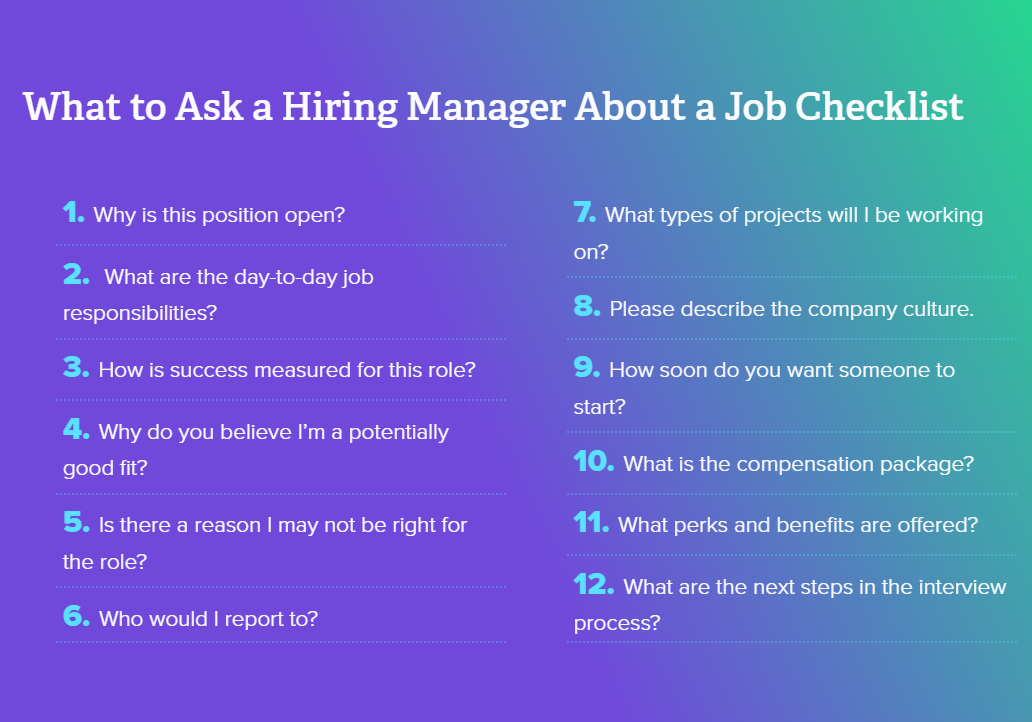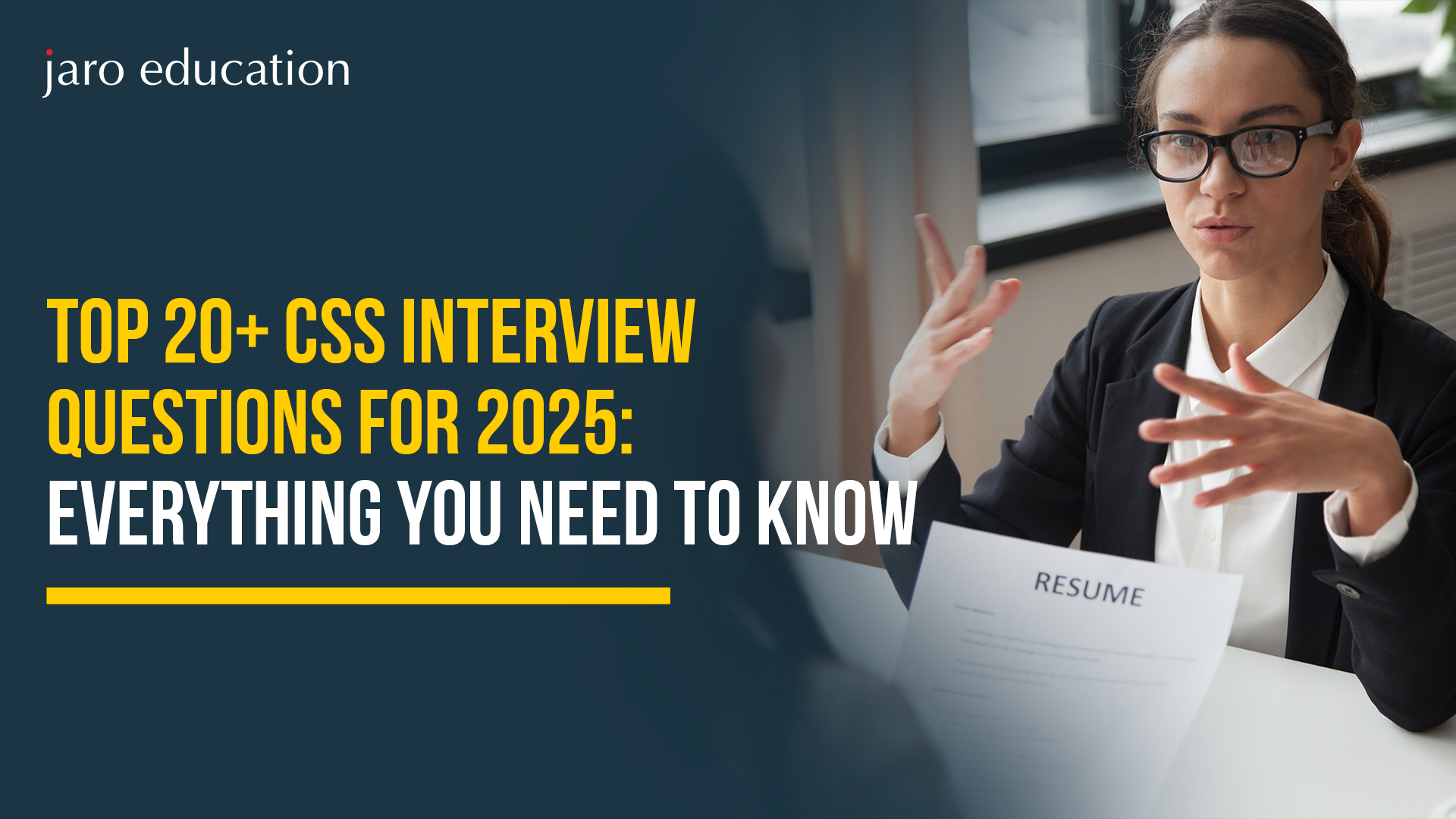8 Amazing Ways to Impress a Hiring Manager in Your Interview
Table of Contents

In today’s competitive world, getting a job, especially your dream job, is no easy task. Making sure that you are perfect for a position is not enough. You have to prove it to the recruiters. Here comes the question of how to impress the recruiter.
Often it happens that people who are completely eligible for a job don’t end up getting hired. They couldn’t convince the recruiters that they were the best fit for the job. This dilemma is nothing new, and many have asked this question by now.
Beyond showcasing your qualifications, it’s essential to demonstrate your genuine interest in the role and the company. One effective strategy is to prepare insightful interview questions to ask managers, which exhibit your enthusiasm and help you assess if the company aligns with your career goals.
Jaro Education understands that many applicants and job seekers wonder how to impress HR in interviews. Hence, in this blog post, we’ll explore eight impactful ways to impress a hiring manager, emphasizing the importance of the right interview questions to ask top management.

*4cornerresources.com
8 Interview Secrets to Wow Your Hiring Manager
Here’s how to impress in an interview:
1. Prepare yourself
An interview is not just about the minutes you spend with the interviewer. You need to prepare in advance if you want to impress a recruiter. If it’s a face-to-face interview, your attire should be professional. You should be well-dressed and well-groomed. A casual attitude here can make you look like you are not serious about the interview or the job.
Make sure your resume is recently updated and includes all the necessary details, including your school background, employment history, abilities, and any significant accomplishments, as well as your contact information. Keep it brief and avoid any grammatical errors. It is always advisable to carry a copy of your resume, even if you have sent one over before to the recruiter.
Before stepping into the interview room, invest time in understanding the company’s mission, values, products, services, and recent developments. This knowledge enables you to tailor your responses to align with the company’s objectives and culture. Moreover, it equips you to pose interview questions to ask managers, reflecting your proactive approach and genuine interest.
Example interview question to ask managers: “Can you share insights into the company’s strategic goals for the next five years and how this role contributes to achieving them?”
2. Do your research
Before you appear for the interview, do basic research about the company and the position they are hiring for. You must ensure that you possess the educational qualification and work experience the recruiter asks for. Also, make sure to enquire about the salary range beforehand and appear for the interview only if you are comfortable with it. You do not want to ask about what qualifications they want or what salary they are offering during the first interview. That might reflect a lack of knowledge about the position you are applying for.
Instead, you can prepare thoughtful interview questions to ask managers to demonstrate your critical thinking and enthusiasm.
Example interview questions to ask managers:
- “How does the company foster professional development and continuous learning for its employees?”
- “Can you describe the team dynamics and the management style within the department?”
These interview questions to ask top management not only provide valuable information but also convey your commitment to integrating seamlessly into the company’s culture.
3. Make a strong first impression
Clear and articulate communication is paramount during an interview. Listen attentively to the hiring manager’s questions and respond concisely, ensuring your answers are structured and relevant. Effective communication also involves non-verbal cues; maintain eye contact and adopt an open posture to convey confidence and professionalism.
Enter with a smiling face. Offer a firm handshake if the distance between you and the interviewer allows it. Say proper greetings, be it good morning, good afternoon or good evening.
If the interviewer asks, ‘How are you?’ or ‘How are you doing?’, you should confidently answer, ‘I am doing great.’ This answer should be followed by a ‘Thank you’ and ‘Hope you are doing well.’ A strong first impression goes a long way in leaving a great impression of your overall personality.
4. Practice your introduction
The very first question a recruiter generally asks is to tell them about yourself. Do not treat it like an out-of-the-blue question, or don’t fumble. You do not need to give them your complete life story or a recitation of your resume. A brief introduction showcasing your skills, experiences, education, and attitude towards work will suffice.
There is no need to mention your name again in the introduction if the interviewer has already addressed you by name. Start with your latest work experience in reverse chronological order. Then mention your educational background, professional skills, and attitude towards work and life. The best way to handle this is to think about and practice your introduction beforehand.
When discussing your experience, focus on accomplishments that are pertinent to the role. Use quantifiable metrics to illustrate your impact in previous positions. This approach provides concrete evidence of your capabilities and how they can benefit the prospective employer.
Example: “In my previous role as a marketing coordinator, I spearheaded a campaign that increased brand engagement by 35% over six months, resulting in a 20% boost in sales.”
5. Exhibit professionalism and confidence
You want the recruiter to take you seriously. You have to show your willingness to get hired for the job. Whatever question is being asked, answer factually and politely. Do not maintain a casual tone, but at the same time, try not to sound too serious and robotic. Speak with enthusiasm and energy in your voice.
Suppose you are going through the Jaro Education recruitment process, and we ask you why we should hire you. Do not give general answers like you are hard-working or passionate. Instead, give us facts and examples to support your statements.
Genuine enthusiasm can set you apart from other candidates. Express your excitement about the opportunity and the prospect of contributing to the company’s success. This passion should be evident not only in your words but also in your tone and body language.
Example interview question to ask managers: “What aspects of working here do you find most rewarding, and how does the company support employee satisfaction?”
6. Address potential concerns proactively
If you anticipate any reservations the hiring manager might have about your application, address them head-on. Whether it’s a gap in employment or a lack of specific experience, provide context and highlight steps you’ve taken to mitigate these issues.
Example: “I understand that my experience in direct sales is limited; however, I’ve undertaken courses in sales strategies and have collaborated closely with sales teams in previous projects, which has equipped me with a solid foundation in this area.”
7. Highlight relevant achievements with quantifiable results
When you talk about your history, concentrate on achievements that are relevant to the position. Quantifiable metrics show how much you have contributed in past jobs. This method offers clear proof of your abilities and how they might help the prospective employer.
Example: “I spearheaded a campaign as a marketing coordinator that raised brand engagement by 35% in six months, growing sales by 20%.“
8. Send a follow-up mail
This is where many fail to connect with the recruiter after the interview. A recruiter can talk to multiple applicants in a single day. If you send a follow-up email about the interview, thanking the recruiter for giving you the time, it will help you become a little more relevant in front of the recruiter.
Post-interview, send a customized thank-you email to show your gratitude for the chance and to reiterate your interest in the position. Reference specific topics discussed during the interview to demonstrate your attentiveness and reflection.
Example: “Thank you for the insightful conversation yesterday. What caught my attention was the innovative philosophy of the company and the way the staff is investigating fresh market approaches. The chance to help with these projects thrills me.“
Additional Tips to Impress a Hiring Manager
Here are some additional tips if you’re looking for more on how to impress in an interview:
9. Showcase your problem-solving skills
Employers appreciate applicants who can think critically and solve problems quickly. Be ready to talk about times you have spotted problems and successfully solved them.
Example: “In my last role, I noticed a bottleneck in our approval process for content that slowed down project completion.” My suggestion for a more organized workflow cuts approval time by 40%, hence increasing general efficiency.
10. Display professionalism and punctuality
Two key elements of professional behavior are arriving on time and dressing appropriately. Try to come at least 10 to 15 minutes early to account for unforeseen delays. Choosing business attire or following the dress code of the business shows respect and commitment to the opportunity.
11. Use positive body language
Nonverbal messages play a significant role in how you’re perceived. Give a strong handshake, smile genuinely, and maintain good posture. These indications convey confidence and approachability.
12. Be honest and authentic
Authenticity helps to build confidence. Be honest about your qualifications and experience. It is better to admit that you do not know the answer to a question and show your desire to learn than to fabricate an answer.
13. Prepare for behavioral interview questions
Many hiring managers ask behavioral questions to evaluate your history of handling issues. Structure your replies properly using the STAR method of Situation, Task, Action, and Result.
Example interview question to ask managers: “Can you describe a time you had to meet a tight deadline?”
Response: “Absolutely. In my last employment, I encountered a client who requested a two-week turnaround for a major project. I called a kickoff meeting to assign responsibilities according to team members’ abilities, establish explicit goals, and keep regular checkups. The customer was very happy with the work quality, and we finished by the deadline.”
14. Express long-term interest
Employers could find a wish for long-term development appealing. Share how you imagine yourself changing over time to help the company grow.
Example interview question to ask managers: “Could someone in this position find any promotions within the company?”
15. Practice active listening
Active listening is when you pay full attention to the speaker without interruption. Nod in acknowledgement, keep eye contact, and reply thoughtfully. This shows respect and makes sure you know the subtleties of the argument.
16. Be prepared to discuss salary expectations
Though it is best to let the employer bring up compensation, be ready to negotiate your salary expectations. Look at your level of expertise and study industry norms for the position to fetch a decent range.
Example Response: “I know that other jobs usually pay between $x and $y based on my knowledge and research. I’m willing to talk about a compensation plan that mirrors my talents and the worth I can offer the company.”
17. Highlight continuous learning
Showing a dedication to professional and personal growth shows you are proactive in improving your abilities.
Example interview question to ask managers: “Does the company sponsor continuous education or provide possibilities for career advancement?”
We hope that the above-mentioned points will help enhance your communication skills so you can ace your next interview. Stick to the basics, preferably dress up nicely, be confident, be diligent in your research, practice the standard answers, and be your natural self.
18. Show leadership potential
Showing leadership qualities could impress hiring managers even if you are applying for a non-leadership position. Provide instances when you have led a project, mentored a coworker, or otherwise taken charge. Leadership could mean being accountable and owning as much as managing people.
Example interview question to ask managers: “Which leadership attributes do you most prize in your team members, and how can I match those expectations?”
19. Understand and align with the company’s goals
Candidates who match the long-term objectives and mission of the company are highly valued by hiring managers. Find these ahead of time and use them to set your answers or inquire of managers about growth, change management, or future objectives in interviews.
Example interview question to ask managers: “I read about the company’s intent to enter developing economies. How does this position assist those tactical objectives?”
20. Display Emotional Intelligence (EQ)
Emotional intelligence is increasingly sought after as a talent. EQ includes self-awareness, stress control, empathy for others, and management of interrelationships. Demonstrating these qualities will show the interviewer you are a team player and help you establish a relationship with them.

*print.homeurl.us
Balance Between Soft Skills and Hard Skills with Jaro Education
In today’s competitive job landscape, qualifications alone are not enough to make an impression on the managers. It demands a deliberate approach to personal and professional growth. That’s where Jaro Education comes in. A trusted higher education partner, Jaro Education helps professionals with the appropriate skills, confidence, and industry insights that assist them to flourish in the modern workplace.
If you need additional career guidance and resources for your professional growth, discover Jaro Education’s products designed to inspire and strengthen your career journey.
Conclusion
Impressing a hiring manager demands sincere passion, excellent communication skills, and meticulous planning. You establish yourself as a strong candidate by doing thorough company research, preparing thoughtful interview questions to ask managers, and showcasing your accomplishments and cultural fit.
Remember, an interview is about more than just answering questions; it’s also about engaging in a meaningful dialogue to establish mutual compatibility. Approach it with confidence, genuineness, and a proactive attitude to make an impression that lasts.
Frequently Asked Questions
What are some strong interview questions to ask managers?
Some impactful interview questions to ask managers include:
- “What are the metrics for success in this role?”
- “What are the current team’s major challenges?”
- “How do you support team collaboration and creativity?”
Why are interview questions to ask managers important?
Questioning aids you in more fully grasping the company direction, team culture, and position. It also shows intellectual curiosity and analytical problem-solving, which hiring managers appreciate.
How can I impress in an interview without experience?
Highlight transferable skills, relevant coursework, internships, and your willingness to learn. Strong communication, a positive attitude, and insightful interview questions to ask managers can also make a big difference.
What type of interview questions should I ask managers?
Ask about long-term corporate plans, leadership philosophy, and your role’s relation to larger organizational goals. These interview questions to ask managers show strategic thinking and sophistication.
















